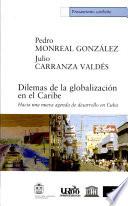
Busca tu ebook....

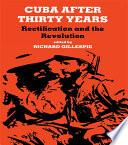
Cuba After Thirty Years
Autor: Richard Gillespie
Número de Páginas: 210First Published in 1990. This collection of articles has been produced, not just to mark the thirtieth anniversary of the Cuban revolution, but because the anniversary has fallen at a time of important political developments affecting the Caribbean island.
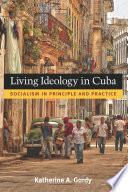
Living Ideology in Cuba
Autor: Katherine Gordy
Número de Páginas: 297A revealing look at the complicated and continual negotiation between the Cuban state and society over the meaning of socialism
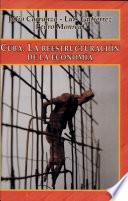
Cuba, la reestructuración de la economía
Autor: Julio Carranza , Luis Gutiérrez Urdaneta , Pedro M. Monreal González
Número de Páginas: 198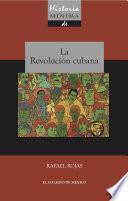
Historia mínima de la revolución cubana
Autor: Rafael Gutierrez Rojas
Número de Páginas: 165Esta es una historia mínima de un fenómeno complejo y cambiante, en un periodo de dos décadas, llamado Revolución cubana. Mínima historia, en el sentido que dio a estos términos el historiador mexicano Daniel Cosío Villegas, allá por los años setenta. El autor de esta obra repasa las líneas maestras del cambio económico, social, político y cultural que vivió la isla entre los años cincuenta y setenta del pasado siglo. El apego a esas décadas parte de la apuesta conceptual y metodológica de las historiografías más contemporáneas sobre las grandes revoluciones modernas de los dos últimos siglos, donde se entiende ese tipo de fenómenos colectivos, estrictamente, como procesos que van de la destrucción del antiguo régimen a la construcción del nuevo.
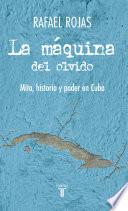
La máquina del olvido
Autor: Rafael Rojas
Número de Páginas: 162Ocho ensayos que analizan la Revolución Cubana, el conflicto de la isla con Estados Unidos, y diversos temas del futuro del país. De Rafael Rojas, ganador del Premio Matías Romero de Historia Diplomática. Un libro para entender la Cuba de la actualidad. En la actualidad, los defensores y opositores del régimen surgido de la Revolución Cubana se encuentran sumidos en una discusión que trasciende los límites de la isla y que obliga a cuestionar la historia oficial y las consecuencias que ésta ha tenido para el desarrollo de esa nación. La máquina del olvido explora esas tensiones de la Cuba contemporánea a través de ocho ensayos. Cada uno de ellos enfocado en analizar la experiencia de memoria y olvido desde un ángulo diferente: ideológico, literario, constitucional, intelectual, socialista, del conflicto entre Estados Unidos yCuba, de la cultura popular, y de las diversas opciones de futuro que se debaten en la isla y en el exilio. Es ese enfrentamiento entre el modelo de Fidel Castro y las posturas críticas de los jóvenes historiadores lo que está construyendo la nueva consciencia cubana y reescribiendo su historia. Esa consciencia crítica frente al discurso...
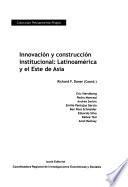
Innovación y construcción institucional
Autor: Richard F. Doner , Eric Hershberg
Número de Páginas: 146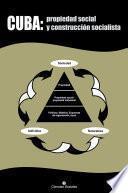
Cuba: propiedad social y construcción socialista.
Autor: Rafael Alhama Belamaric , Jesús Pastor García Brigos , Roberto Jesús Lima Ferrer , Daniel Rafuls Pineda
Número de Páginas: 552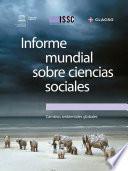
Informe mundial sobre ciencias sociales, 2013
Autor: Unesco
Número de Páginas: 690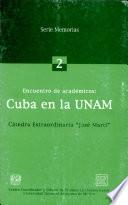
Encuentro de académicos
Número de Páginas: 194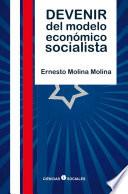
Devenir del modelo económico socialista
Autor: Ernesto Molina Molina
Número de Páginas: 206El punto de partida de este texto es el estudio acerca de las condiciones en las cuales Marx, Engels y Lenin desarrollaron sus principales concepciones económicas, continúa con el debate acerca del modelo económico socialista en la URSS en el período 1924-1961 y las tesis de Bujarin, Preobrajensky y Stalin, seguido de las ideas de los economistas Wodzimiers Brus, Ota Sik y Janos Kornai, representantes de las ideas de reformas socialistas en Polonia, Checoslovaquia y Hungría, así como el modelo de autogestión yugoslavo. Prosigue con el análisis sobre el papel del plan y el mercado en el socialismo, en las experiencias históricas de las reformas emprendidas por China y Vietnam. Contextualiza, además, las condiciones en las cuales Ernesto Che Guevara debatió acerca de las ideas y proyectos económicos en la etapa inicial de la Revolución Cubana (1959-1965). Ernesto Molina explica la evolución y la elaboración conceptual del modelo socialista de desarrollo económico-social en Cuba, donde 1991 y 2010 han resultado puntos de inflexión, uno, que dio inicio al período especial y otro, a una nueva estrategia de desarrollo a partir del debate y aprobación de los...
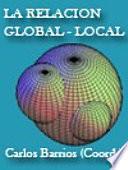
La relación global - local: Sus implicancias prácticas para el diseño de estrategias de desarrollo
Número de Páginas: 92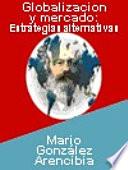
Estrategias alternativas frente a la globalizacion y al mercado: la experiencia socialista
Autor: Mario González Arencibia
Número de Páginas: 117
Tres décadas de reflexiones sobre el hábitat latinoamericano
Autor: Roberto Segre
Número de Páginas: 176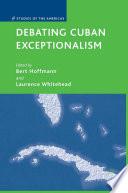
Debating Cuban Exceptionalism
Autor: L. Whitehead , B. Hoffman
Número de Páginas: 254This volume traces the developments in Cuba following the fall of the Berlin Wall and the subsequent definitive demise of state socialism. Topics covered include: the reasons for the persistence of 'the Cuban model,' and an examination of the interaction between elite and non-elite actors, as well as between domestic and international forces.
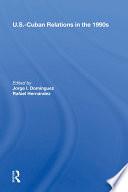
U.s.-cuban Relations In The 1990s
Autor: Jorge I Dominguez
Número de Páginas: 243The contributors and editors purpose in this book is to sketch where and why the United States and Cuba differ; to identify the issues where differences are likely to endure because they stem from the central values and interests of such different political and economic regimes; and to point to those other issues where skillful diplomacy might fin
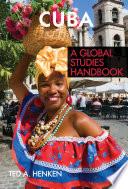
Cuba
Autor: Ted A. Henken
Número de Páginas: 608This fascinating work provides an enlightening guided tour of the island of Cuba's historical, political, economic, and sociocultural development from the pre-Columbian period to the present. Cuba: A Global Studies Handbook offers a revealing look at a nation that, in its ongoing pursuit of freedom, has been a colonial pawn, a neocolonial paradise for corrupt politicians and dictators, an alluring vacation destination, a defiant Communist holdout and embarrassing thorn in the side of the powerful United States. Drawing heavily on his own research and experiences on the island, the author follows Cuba's political, economic, and sociocultural development from the pre-Columbian period to the present—with an emphasis on the revolutionary period. The book's reference section includes alphabetically organized entries on important people, places, and historical events, as well as shorter sections on Cuban Spanish, national traditions and holidays, cuisines, and important organizations. Also featured is a chart tracing the development of Cuban popular music and a listener's guide to some of the best available recordings.
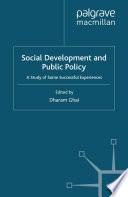
Social Development and Public Policy
Autor: D. Ghai
Número de Páginas: 391The book shows, through in-depth case studies, how some low income countries have made enormous strides in overcoming problems of adult literacy, lack of schooling, high child mortality, rapid population growth, mass poverty and gender inequalities. With contributions from outstanding scholars, the book analyses the experiences with social development and public policy of Chile, China, Costa Rica, Cuba, Kerala, Sri Lanka and Vietnam. Using a holistic approach, it draws lessons and evaluates their relevance for other countries interested in emulating their achievements.
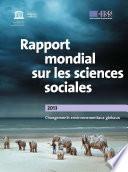
Rapport mondial sur les sciences sociales, 2013
Autor: Unesco , International Social Science Council
Número de Páginas: 681Aucune information saisie
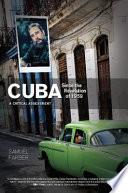
Cuba Since the Revolution of 1959
Autor: Samuel Farber
Número de Páginas: 386Uncritically lauded by the left and impulsively denounced by the right, the Cuban Revolution is almost universally viewed one dimensionally. Farber, one of its most informed left-wing critics, provides a much-needed critical assessment of the revolution’s impact and legacy.
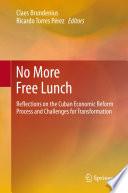
No More Free Lunch
Autor: Claes Brundenius , Ricardo Torres Pérez
Número de Páginas: 269In September 2010, the Cuban government decided to embark on an economic reform program, unprecedented after the Revolution in 1959. This opened up opportunities for Cuban economists and scholars to participate in the development of the reform program. Thanks to grants from SSRC (Social Sciences Research Council, New York) and the Norwegian Ministry of Foreign Affairs, several researchers from the Cuban think tank CEEC (Center for Studies of the Cuban Economy, Havana) got an opportunity to visit countries that could be of interest for the reform process, notably Vietnam, but also Brazil, South Africa and Norway. The result of these field visits and a subsequent workshop involving contributions from Cuban as well as non-Cuban scholars, this volume showcases unprecedented new insights into the process and prospects for reform along many dimensions, including foreign direct investment, import substitution, entrepreneurship and business creation, science and technology development, and fiscal policies. The resulting analysis, in a comparative perspective, provides a framework for future research as well as for business practice and policymaking.
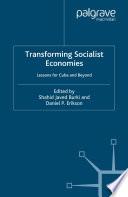
Transforming Socialist Economies
Autor: S. Burki , D. Erikson
Número de Páginas: 254Transforming Socialist Economies: Lessons for Cuba and Beyond argues that countries with centrally-planned economies can pursue divergent paths towards market liberalization. The book reviews the reform processes of China, the Central Asian Republics, Eastern Europe, Russia, Vietnam, and the role of the international financial institutions, and draws lessons for Cuba, a country on the verge of wider economic transformation.
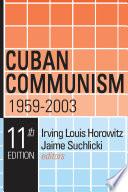
Cuban Communism, 1959-2003
Autor: Irving Louis Horowitz
Número de Páginas: 759"Cuban Communism remains, like its previous ten editions, an important contribution to the field of Cuban Studies. It includes many useful chronological facts, as well as a selection of Fidel Castro's speeches which are interesting and informative for any reader interested in the island." -- Maria Gropas, Department of Social Anthropology, University of Cambridge This new 11th edition of a classic text, come to be known as "the bible of Cuban Studies," emphasizes two key issues of the twenty-first century. First, transition concerns in a world without Castro, and second, the continuing embargo of Cuba by the United States in the aftermath of a major change in the presidency. Cuban Communism has been updated to take account of changes in the 44 years of Castro's rule since seizing power in 1959. In addition to articles and essays that represent new developments in Cuba, the work boasts a database upgrade that makes it more important to students, scholars, and researchers. The volume has expanded the section on future prospects for civil society and democracy in a post-Castro environment; including "Regime Change in Cuba" by Eusebio Mujal-Leon and Joshua W. Busby; "Transition...
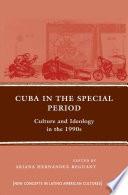
Cuba in the Special Period
Autor: A. Hernandez-reguant
Número de Páginas: 231This collection examines Cuban cultural production during the Special Period of the 1990s, following the collapse of the Soviet Bloc. Contributors address the cultural forms; and the associated ethics and practices of labour, leisure, and bureaucratic organization that arose in the transformation of the socialist cultural infrastructure.
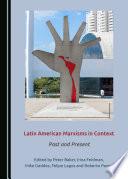
Latin American Marxisms in Context
Autor: Peter Baker , Irina Feldman , Mike Geddes
Número de Páginas: 263In recent decades, the global North has been engulfed by neoliberalism. Neoliberal ideas have dominated the economy and public policies, and have become deeply entrenched as “common sense.” Latin America has not been immune to this trend. However, at the same time, governments and popular mobilizations across the continent have actively resisted and challenged neoliberalism. Countries such as Venezuela and Bolivia have sometimes been grouped under the label of a “pink tide,” denoting their leftist alignment and their resistance to the Washington-led neoliberal consensus. This opposition to neoliberal development patterns in Latin America has gone beyond social-democratic reformism to a revival of Marxist theoretical perspectives and political practices. This book provides an insight into the rich diversity of Latin American Marxism, historically and contemporarily. Given the global interest in the revival of radicalism in Latin America, it will appeal to a wide audience, and should be of interest to non-Marxist as well as Marxist scholars with interests in topics from political economy to cultural theory.
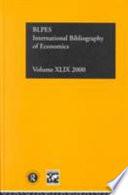
International Bibliography of Economics
Autor: Compiled By The British Library Of Political And Economic Science
Número de Páginas: 720IBSS is the essential tool for librarians, university departments, research institutions and any public or private institution whose work requires access to up-to-date and comprehensive knowledge of the social sciences.
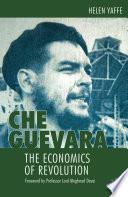
Che Guevara
Autor: H. Yaffe
Número de Páginas: 368Che Guevara remains an iconic figure, four decades after his death. Yet his most significant contribution - his work as a member of the Cuban government - is rarely discussed. This book explores his impact on Cuba's economy, through fascinating new archival material and interviews.
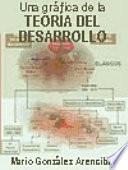
Una gráfica de la Teoría del Desarrollo Del crecimiento al desarrollo humano sostenible
Número de Páginas: 155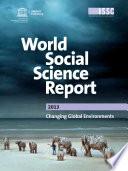
World Social Science Report 2013
Autor: Unesco , Issc
Número de Páginas: 611Produced by the International Social Science Council (ISSC) and UNESCO, and published by the OECD, the 2013 World Social Science Report represents a comprehensive overview of the field gathering the thoughts and expertise of hundreds of social scientists from around the world. This edition focuses on the transformative role of the social sciences in confronting climate and broader processes of environmental change, and in addressing priority problems from energy and water, biodiversity and land use, to urbanisation, migration and education. The report includes 100 articles written by 150 authors from 41 countries all over the world. Authors represent some 24 disciplines, mainly in the social sciences. The contributions highlight the central importance of social science knowledge for environmental change research, as a means of understanding changing environments in terms of social processes and as framework for finding concrete solutions towards sustainability.
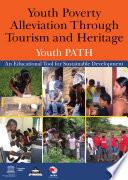
Youth Path Manual: Kingston Office
Autor: Unesco Office Kingston
Número de Páginas: 72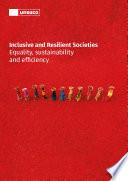
Inclusive and Resilient Societies
Autor: Unesco
Número de Páginas: 75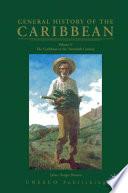
General History of the Caribbean UNESCO Volume 5
Autor: Na Na
Número de Páginas: 828Volume 5 provides an account and interpretation of the historical development of the region from around 1930 to the end of the twentieth century. Its wide ranging study of the economic, political, religious, social and cultural history of this period brings the series to the authorial present. Highlights include the 'turbulent thirties;' decolonization; the 'turn to the left' made in the 1970s by anglophone Caribbean countries; the Castro Revolution; and changes in social and demographic structures, including ethnicity and race consciousness and the role and status of women.
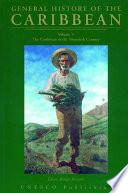
General History of the Caribbean
Autor: Brereton, Bridget , Martínez-vergne, Teresita , Römer, René A. , Silvestrini, Blanca G. , Unesco
Número de Páginas: 830The major objective of this publication is to provide an account and interpretation of the historical development of the region from around 1930 to the end of the century. Within its compass are the "turbulent thirties", including the Cuban Revolution of 1933 and the labour protests in the British Caribbean of 1934; the strategic position occupied by the region during the Second World War; the development of proletarian movements and trade unions and their links with political parties; decolonization; political evolution in the French and Dutch Caribbean, and the "turn to the left" made in the 1970s by a number of Anglophone Caribbean countries, notably Grenada. Also examined are the Castro Revolution and its aftermath to the 1990s; ethnicity and race consciousness and their effects in uniting or dividing communities and nations; international relations and regional co-operation; changes in social and demographic structures (including the role and status of women); education, migration and urbanization; and the beliefs and cultural experiences which underpin Caribbean identity. The final chapter provides an overall survey of changes in the quality of life in the Caribbean during...
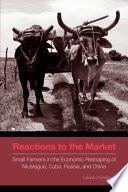
Reactions to the Market
Autor: Laura J. Enriquez
Número de Páginas: 260It is manifest in developing countries around the world that the &“shock&” therapy administered to their economies by the neoliberal model of structural adjustment has failed, leaving much social and economic destruction in its wake. In Latin America this failure has led to a resurgence of interest in alternative models, some of them deploying various versions of socialism, as in Bolivia, Chile, and Venezuela, which has given rise to talk about the new &“pink tide&” enveloping the region. In this comparative study of four economies that have been making a transition to the market from their orthodox socialist pasts, Laura Enr&íquez focuses our attention on the plight of the small farmer in particular and on the importance of this sector for the overall socioeconomic success of the transition. Through this comparison, we see the similarities between Nicaragua and Russia in their rapid retreat from socialism and their adoption of reforms that have placed small agriculture, especially that focused on food crops, at a distinct disadvantage relative to export-oriented production. By contrast, Cuba has been more like China in adopting aspects of market reform while emphasizing...
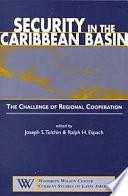
Security in the Caribbean Basin
Autor: Joseph S. Tulchin , Ralph H. Espach
Número de Páginas: 244Since the end of the Cold War, security concerns in the Caribbean have changed from containment of communism to transnational threats such as drugs, illegal migration and natural disasters. This text analyzes the situation and puts forward a framework for a cooperative regional security system.
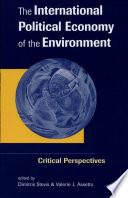
The International Political Economy of the Environment
Autor: Dimitris Stevis , Valerie J. Assetto
Número de Páginas: 324Thirteen contributions from political scientists, sociologists, and other academics represent a critical approach to the IPE of the environment: "an approach that focuses on the historical development and framing of environmental problems and solutions and that seeks to understand the social priorities or purpose that differing problems and solutions reflect" (from the preface). A unifying theme is the idea that the way in which problems are framed intimately impacts the kinds of solutions that are proposed. A sampling of topics: environmental NGOs, TNCs, and the question of governance; environmental discourse and danger in Dominican and Cuban urban watersheds; and global change and the political economy of sustainable development in Brazil. Annotation copyrighted by Book News Inc., Portland, OR
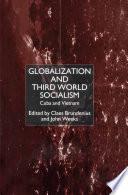
Globalization and Third-World Socialism
Autor: C. Brundenius , J. Weeks
Número de Páginas: 290After the collapse of the Soviet Union, it appeared that the only option for developing countries was integration into the world economy. Written by a group of international experts, this book investigates the strategies deployed by Cuba and Vietnam to consider whether 'socialism', in some form, offers a viable development alternative.

Cuban Studies 23
Autor: Jorge Perez-lopez
Número de Páginas: 294Cuban Studies has been published annually by the University of Pittsburgh Press since 1985. Founded in 1970, it is the preeminent journal for scholarly work on Cuba. Each volume includes articles in both English and Spanish, a large book review section, and an exhaustive compilation of recent works in the field.
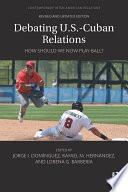
Debating U.S.-Cuban Relations
Autor: Jorge I. Dominguez , Rafael M. Hernández , Lorena G. Barberia
Número de Páginas: 341The boundary between Cuba and the United States has become more and more porous, as have those with Latin America and the Caribbean. Never in the past half-century has Cuba’s leadership or its social and political fabric been so exposed to the influence of the outside world. In this book, an all-star cast of experts critically address the recent past and present in U.S.-Cuban relations in their full complexity and subtlety to develop a perspective on the evolution of the conflict and an inventory of forms of cooperation. This much needed approach provides a way to answer the questions "what has been . . .?" and "what is . . .?" while also thinking seriously about "what if . . .?" To illustrate the most significant areas of U.S.-Cuban relations in the contemporary era, this newly updated edition of Debating U.S.-Cuban Relations adds six more themes to the study of this complex relation: political, security, economic, and cultural/academic issues; the triangular relations of the United States, Cuba, and Europe; and the politics of Cuban migration/emigration. Each topic is represented by perspectives from both Cuban and non-Cuban scholars, leading to a resource rich in insight and...
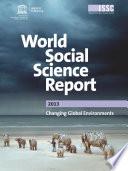
World Social Science Report 2013 Changing Global Environments
Autor: International Social Science Council , United Nations Educational, Scientific And Cultural Organization
Número de Páginas: 614This book represents a comprehensive overview of the field gathering the thoughts and expertise of hundreds of social scientists from around the world. This edition focuses on the transformative role of the social sciences in confronting climate and broader processes of environmental change.
Opciones de Descarga